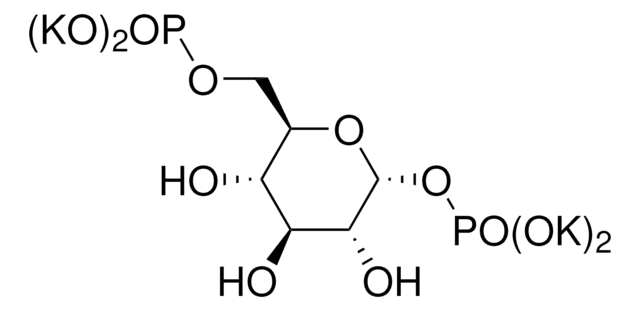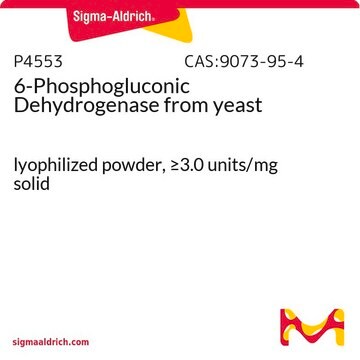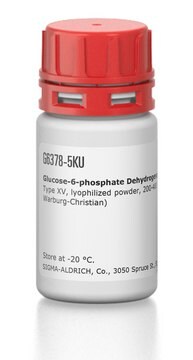SAE0022
Phosphoglucomutase 1 human
lyophilized powder, recombinant, expressed in E. coli
About This Item
Produits recommandés
Produit recombinant
expressed in E. coli
Niveau de qualité
Description
PGM1 isoform sequence with a predicted molecular mass of 61.3kDa.
Essai
≥95% (PAGE)
Forme
lyophilized powder
Activité spécifique
≥400 units/mg protein
Conditions d'expédition
dry ice
Température de stockage
−20°C
Description générale
Actions biochimiques/physiologiques
Définition de l'unité
Forme physique
Code de la classe de stockage
11 - Combustible Solids
Classe de danger pour l'eau (WGK)
WGK 2
Point d'éclair (°F)
Not applicable
Point d'éclair (°C)
Not applicable
Faites votre choix parmi les versions les plus récentes :
Certificats d'analyse (COA)
Vous ne trouvez pas la bonne version ?
Si vous avez besoin d'une version particulière, vous pouvez rechercher un certificat spécifique par le numéro de lot.
Déjà en possession de ce produit ?
Retrouvez la documentation relative aux produits que vous avez récemment achetés dans la Bibliothèque de documents.
Notre équipe de scientifiques dispose d'une expérience dans tous les secteurs de la recherche, notamment en sciences de la vie, science des matériaux, synthèse chimique, chromatographie, analyse et dans de nombreux autres domaines..
Contacter notre Service technique





